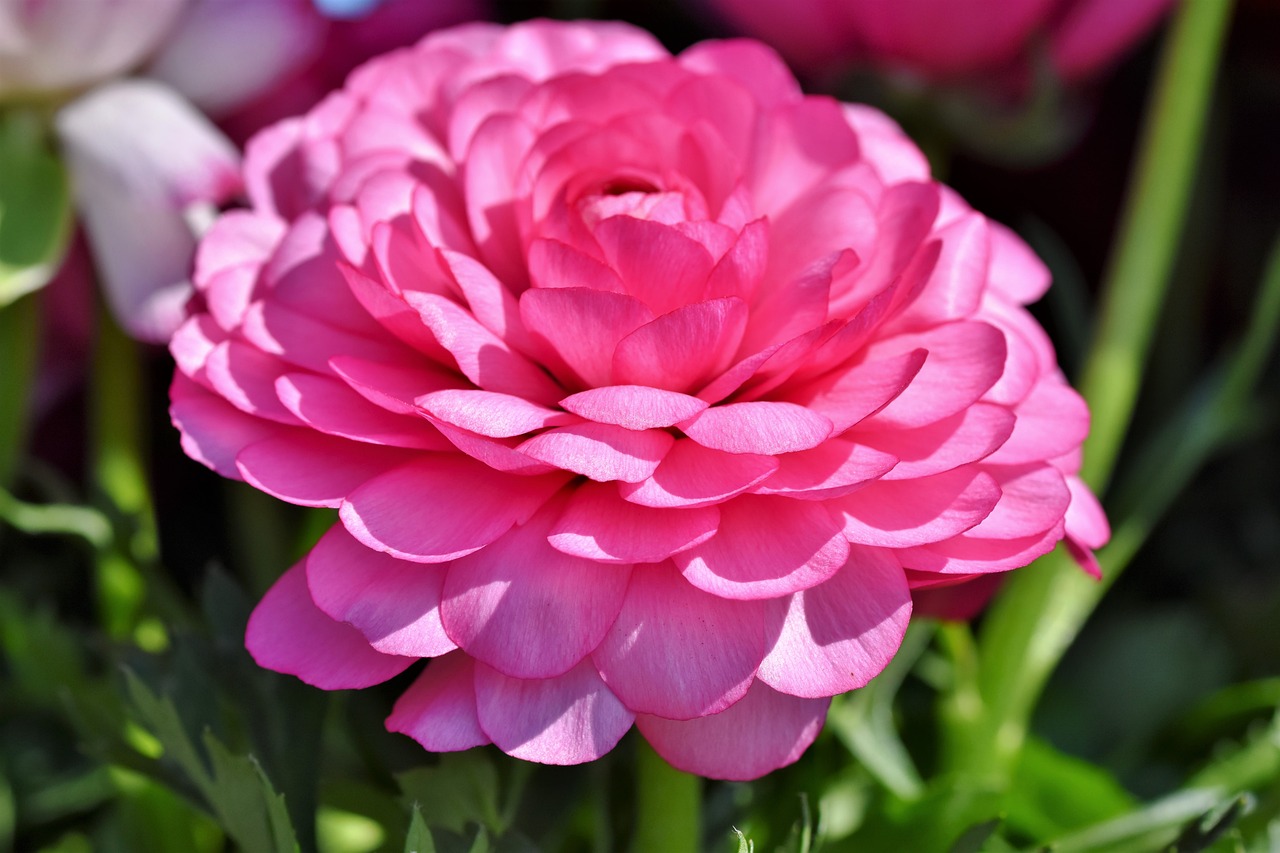Bees play a critical role in pollination, which is essential for our food production and ecosystem balance. As a result, many gardeners and agriculturists look for ways to encourage bee activity in their fields or backyards. One way is to plant flowers that attract bees, and ranunculus is a variety that often comes under question. This article aims to provide a comprehensive review on whether or not ranunculus attracts bees.
Do ranunculus attract bees? While they are not the first choice for bees, ranunculus can indeed attract bees due to their bright colors and pleasant scent. However, it is important to consider other factors like local bee species, surrounding plants, and regional conditions for a more conclusive answer.
What Do Bees Look for in Flowers?
Bees are primarily attracted to flowers that offer a good source of nectar and pollen. Nectar provides them with carbohydrates, while pollen is a source of protein. Bees are also attracted to bright colors and aromatic scents, both of which help them locate flowers from a distance.
The physical structure of the flower also plays a role. Bees prefer flowers that are easily accessible and provide a good landing platform. The color spectrum that attracts bees usually includes yellow, blue, and violet, although this can vary among species.
Do Ranunculus Have Characteristics That Attract Bees?
Ranunculus flowers are often bright and colorful, featuring shades such as red, yellow, orange, and pink. This makes them visually attractive to bees. However, the structure of ranunculus flowers, which often consist of tightly packed petals, may make it difficult for certain species of bees to access nectar and pollen.
Additionally, ranunculus flowers do have a mild scent, although it may not be as potent as other flowers that are known to attract bees more efficiently. This brings us to the conclusion that while ranunculus have some characteristics that could attract bees, they may not be the most efficient at doing so.
What Does Scientific Research Say?
While there is limited scientific research specifically focusing on the interaction between ranunculus and bees, some studies have looked into the characteristics of flowers that are most appealing to bees. These studies suggest that bees are more likely to be attracted to flowers that offer a high reward in terms of nectar and pollen.
Ranunculus do produce nectar, but it’s not as abundant as in some other flowering plants known to attract bees. Therefore, if the aim is to primarily attract bees, other plant species may be more effective.
What Types of Bees Are Likely to Be Attracted to Ranunculus?
Different bee species have different preferences when it comes to flowers. Honeybees and bumblebees are generally more versatile in their choice of flowers, while specialized bee species might focus on specific plant types.
In the case of ranunculus, they are more likely to attract generalist foragers like honeybees or bumblebees rather than specialized species. These generalist bees are adaptable and can access nectar and pollen from a wide range of flower types, including ranunculus.
Are There Varieties of Ranunculus That Are More Effective at Attracting Bees?
Ranunculus flowers come in different varieties, each with its own set of characteristics. Some varieties feature a more open structure, making it easier for bees to access the nectar and pollen. Bright yellow or orange varieties may also be more visually attractive to bees.
However, even within the more “attractive” varieties, ranunculus may not be the first choice for bees if more preferable options like lavender or sunflowers are available in the same area.
What Are Local Factors That Influence This Relationship?
Local factors such as the presence of other flowering plants, the specific species of bees in the area, and even weather conditions can influence whether or not bees are attracted to ranunculus. For example, in a garden filled with flowers that are highly attractive to bees, ranunculus may largely be ignored.
Similarly, in regions where specialized bee species are predominant, ranunculus may not prove effective in attracting these pollinators. Local weather conditions can also play a role, as bees are more active during warm, sunny days, regardless of the types of flowers present.
How to Enhance the Bee-Attracting Potential of Ranunculus?
If you’re intent on planting ranunculus and still wish to attract bees, there are ways to enhance their appeal. One way is to plant them in clusters, making it more likely that the bees will notice them.
Another option is to plant ranunculus alongside other flowers that are known to attract bees, like lavender or salvia. This creates a more diverse foraging ground for the bees, increasing the chances that they will visit the ranunculus as well.
Are Ranunculus Harmful to Bees?
Ranunculus plants, especially some wild species, contain a compound called protoanemonin, which is toxic to certain animals. However, there’s no evidence to suggest that this compound is harmful to bees.
Therefore, while ranunculus might not be the top choice for bees in terms of nectar and pollen, they do not pose a direct threat to these pollinators.
Conclusion: Do Ranunculus Attract Bees?
Do ranunculus attract bees? While the bright colors and pleasant scent of ranunculus can indeed attract bees, they are not the most efficient at doing so. Bees have various preferences that ranunculus partially meets but are more likely to prioritize other flower species that offer higher rewards in terms of nectar and pollen. Local factors and the type of bee species present can also influence this relationship. Therefore, if attracting bees is your primary goal, it may be beneficial to include a variety of bee-friendly plants alongside ranunculus in your garden.

